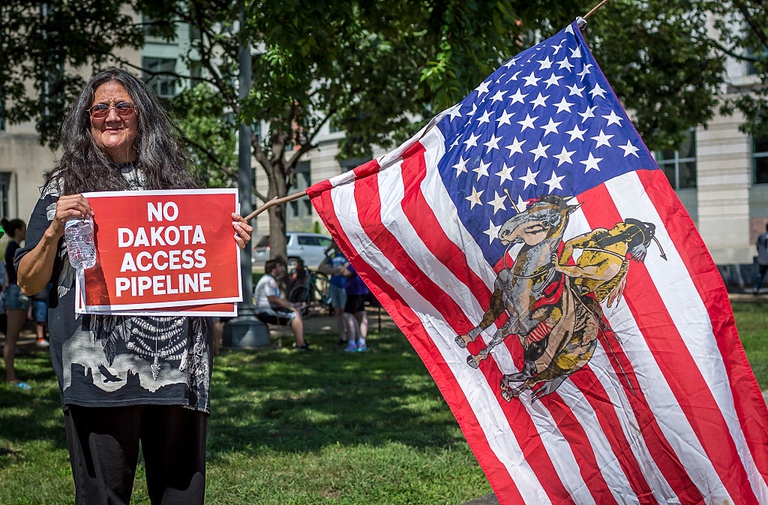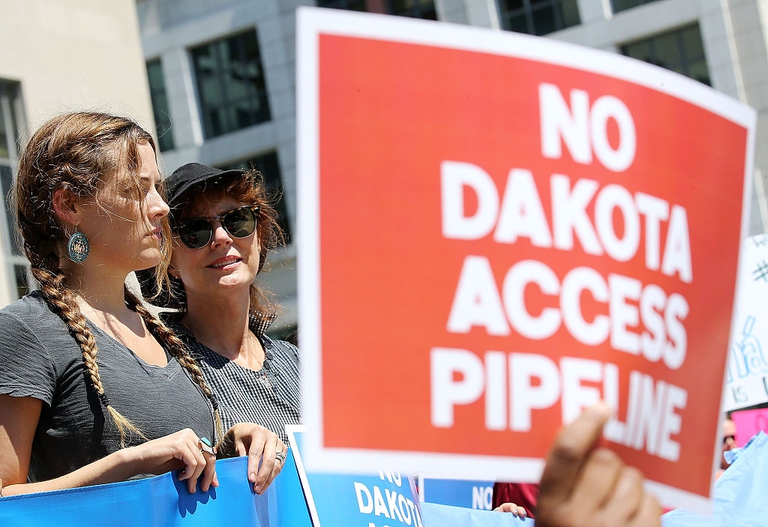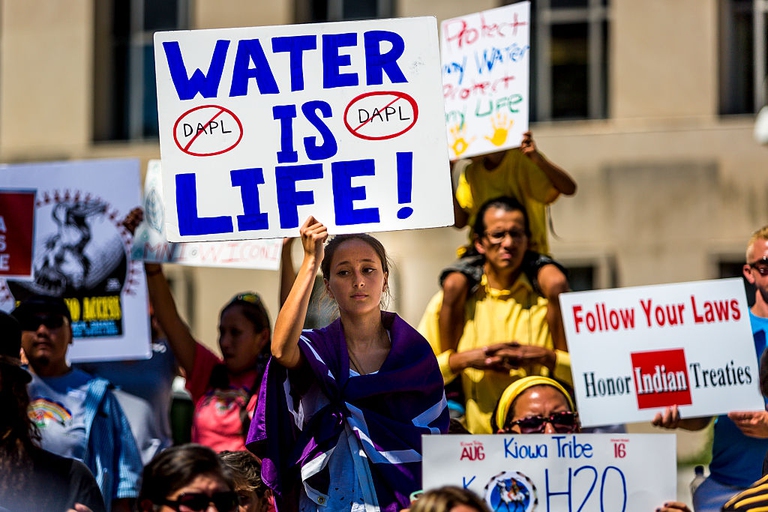
A special report from the Yuqui territory delves deep into the dreams, challenges, joys and sadness of one of Bolivia’s most vulnerable indigenous groups.
MIgliaia di nativi americani protestano contro un oleodotto nel Dakota del Nord che minaccia le terre sioux e il fiume Missouri.
Native Americans have come together to fight the construction of the Dakota Access pipeline, a 1,700-kilometre oil pipeline proposed by the Energy Transfer Partners company. Protests have begun in the Standing Rock Sioux reservation, close to Cannon Ball, North Dakota, which first opposed the works. The pipeline would be the first to carry Bakken shale (natural gas and oil extracted from Bakken formations) passing through Iowa to Illinois. The project is worth 3.7 billion dollars and involves 50 cities in 4 US states, carrying 570,000 barrels of oil equivalent per day. The Standing Rock Sioux tribe has gathered with the members of 27 tribes from different states including Nevada and Washington to oppose the pipeline.
It has all started in April, when the company announced that the oil pipeline would cross under the Missouri River, representing a threat to the lands of the Standing Rock Sioux reservation as the Missouri River is the only source of water natives can rely on. At least 20 protesters accused of housebreaking and disorders have been detained.
The arrests have led activists and prominent personalities (including US actress Susan Sarandon) to support the fight of native Americans against the oil giant, which has halted some operations following clashes between demonstrators and workers. The Standing Rock Sioux tribe has sued the Army Corps of Engineers over not consulting local populations before starting the works and violating the laws on the protection of historical and natural sites. Judges will rule after the 14th of September.
2,500 people of 47 different tribes have been protesting for days. Native Americans have gathered to make rituals, sing chant and pray, recalling the rough relationship between natives and colonists. According to Carolyn Harry, representative of the Pyramid Lake Paiute reservation, “colonialism is still a problem this day and age, only in another form. 500 years ago it may have been bayonets and guns, today it is fracking, it is oil”.
According to Patrick Burtt of the Dresslerville Colony, the conflict in North Dakota is representative of the problems all natives are facing across the country. “A lot of indigenous peoples in North America are going through the same struggles,” Burtt said. “The Standing Rock Sioux are just in the limelight. Standing Rock Sioux is taking a stand and uniting a lot of indigenous peoples, and it really reflects on a lot of the issues as a whole.”
Alongside natives, local farmers are complaining about the damages caused by the realisation of the pipeline. Francis Goebel, for instance, owns 164 acres in the Sioux county, Iowa. His soybean fields have been damaged during coring, which caused the dark topsoil to mix with clay. “Nature separated those soils for a reason,” said Goebel. “If nature put it there, they should put it back the way it was.”
Siamo anche su WhatsApp. Segui il canale ufficiale LifeGate per restare aggiornata, aggiornato sulle ultime notizie e sulle nostre attività.
![]()
Quest'opera è distribuita con Licenza Creative Commons Attribuzione - Non commerciale - Non opere derivate 4.0 Internazionale.
A special report from the Yuqui territory delves deep into the dreams, challenges, joys and sadness of one of Bolivia’s most vulnerable indigenous groups.
The Yuqui people of the Bolivian Amazon fight not only to survive in the face of settlers, logging and Covid-19, but to preserve their culture and identity.
Jair Bolsonaro is accused of crimes against humanity for persecuting indigenous Brazilians and destroying the Amazon. We speak to William Bourdon and Charly Salkazanov, the lawyers bringing the case before the ICC.
Activists hail the decision not to hold the 2023 World Anthropology Congress at a controversial Indian school for tribal children as originally planned.
Autumn Peltier is a water defender who began her fight for indigenous Canadians’ right to clean drinking water when she was only eight years old.
The pandemic threatens some of the world’s most endangered indigenous peoples, such as the Great Andamanese of the Andaman and Nicobar Islands in India.
The Upopoy National Ainu Museum has finally opened. With it the indigenous people of Hokkaido are gaining recognition but not access to fundamental rights.
A video shows the violent arrest of indigenous Chief Allan Adam, who was beaten by two Royal Canadian Mounted Police (RCMP) officers.









